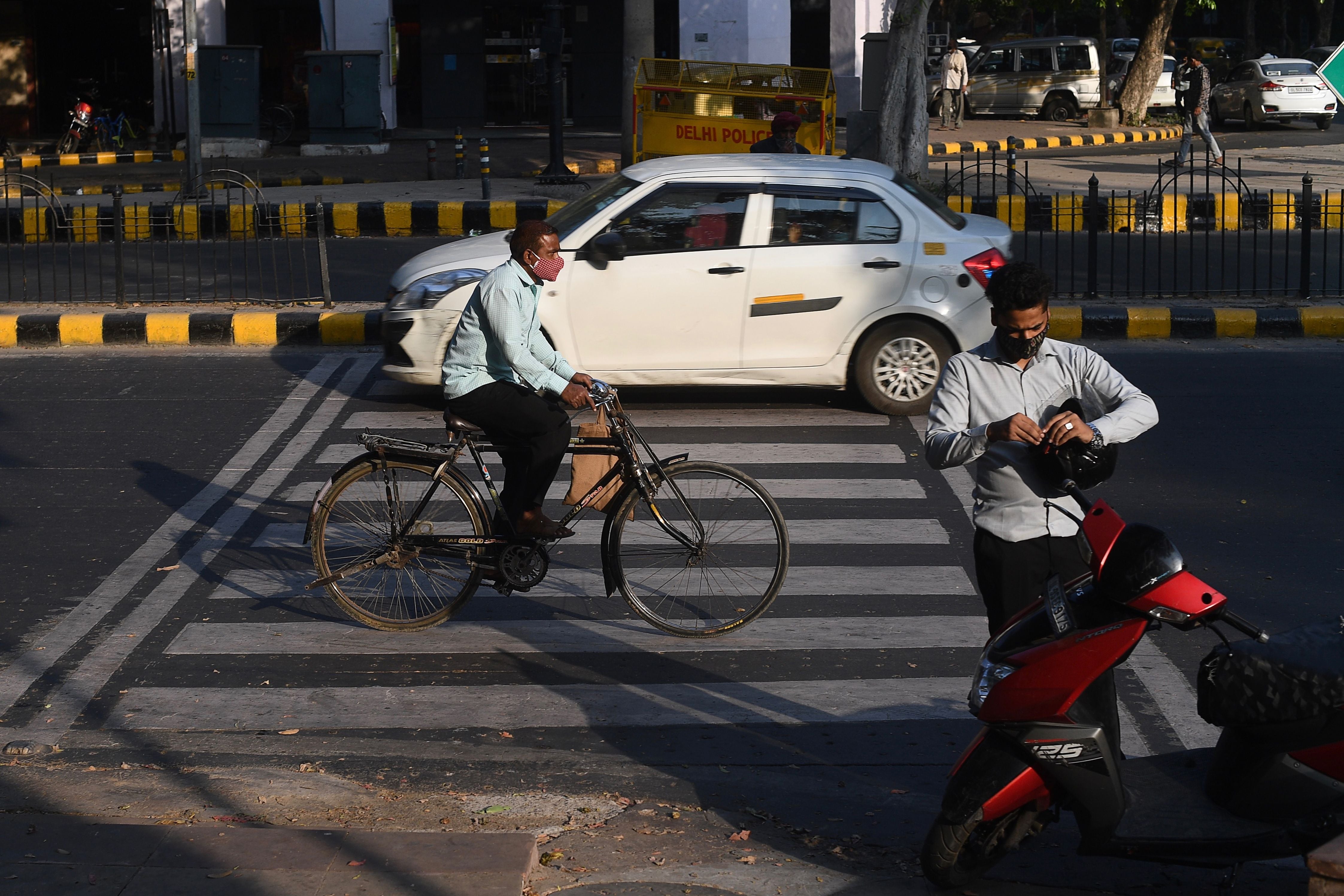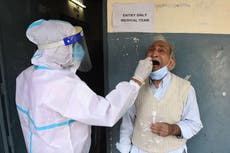In Delhi, we have to make the unenviable choice – protection from the smog or the virus
A surgical mask or Covid-specific face covering doesn’t protect you from all air pollution. In Delhi that’s a real problem, writes Adam Withnall


While the anti-masker movement has gained traction in many parts of the world, in India’s polluted capital city we face a very different problem.
Stepping out of the home these days – for an interview or to our Delhi bureau – I am faced with a question, not of whether to wear a mask, but rather of which mask to wear.
Very early on in the pandemic, the Indian government passed a national order making the use of masks mandatory in all public spaces, both indoors and outdoors. At the time, I questioned government ministers on this because it seemed controversial, and far beyond World Health Organisation recommendations. But experts told me that it made sense because of the challenge of enforcing social distancing in densely packed Indian cities – and in the end, the world has more or less followed suit.
Since early October, however, Delhi has also been beset by its horrendous seasonal air pollution, with Air Quality Index (AQI) figures many times higher than safe limits and regularly maxing out the government’s own monitors.
The problem is that a surgical mask or Covid-specific face covering doesn’t protect you from all air pollution, particularly the tiniest PM2.5 molecules. Equally, a valved N99 or N95 pollution mask doesn’t stop you expelling air, and therefore spreading the virus.
There aren’t many ways around the problem: I’ve tried wearing two masks at once, but it puts a serious strain on the ears. And so in Delhi we have to make the unenviable choice – protection from the smog, or from the virus.
There is also a more serious point at stake here. Experts and public officials agree that air pollution is very likely to exacerbate the symptoms of Covid-19, a virus which primarily attacks the respiratory system. Delhi is seeing a big spike in reported coronavirus cases, its worst wave of the virus so far, even as numbers elsewhere in India are generally on the decline.
It seems likely this is related to the smog, though it is unclear whether the pollution actually leads to more infections, or whether people are more likely to go and get tested if they are feeling the effects of air pollution and confuse it with Covid symptoms.
Either way, with the healthcare system already stretched to bursting and no prospect of a widespread vaccination programme coming to India soon, it is set to be a long and challenging winter for Delhi’s inhabitants.
Yours,
Adam Withnall
Asia editor
Join our commenting forum
Join thought-provoking conversations, follow other Independent readers and see their replies
Comments


Bookmark popover
Removed from bookmarks